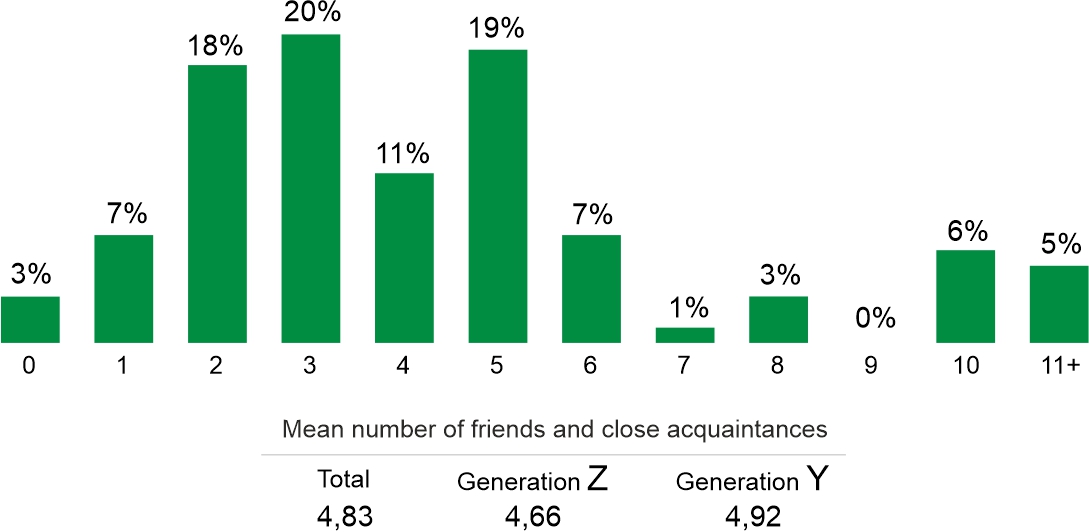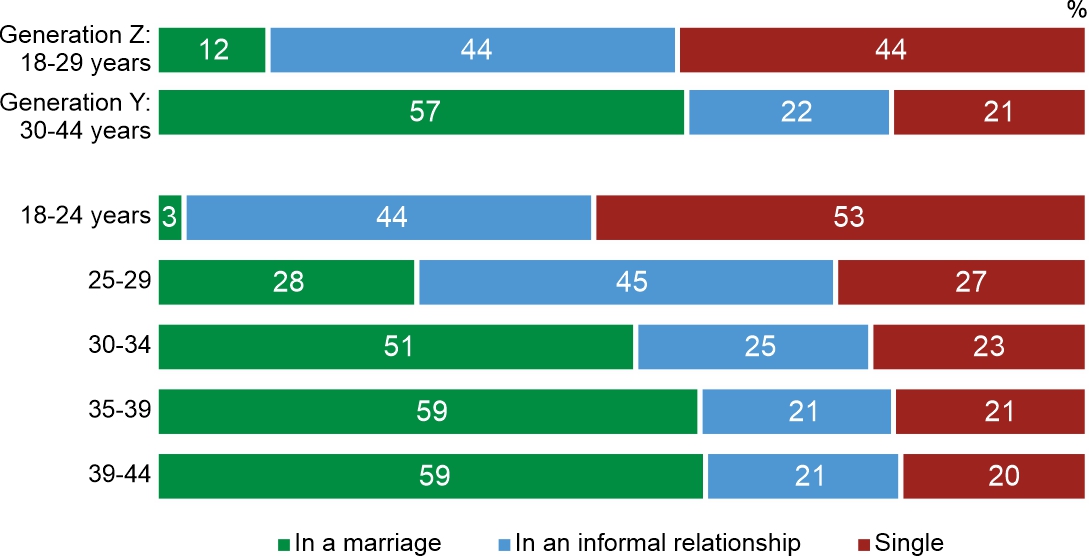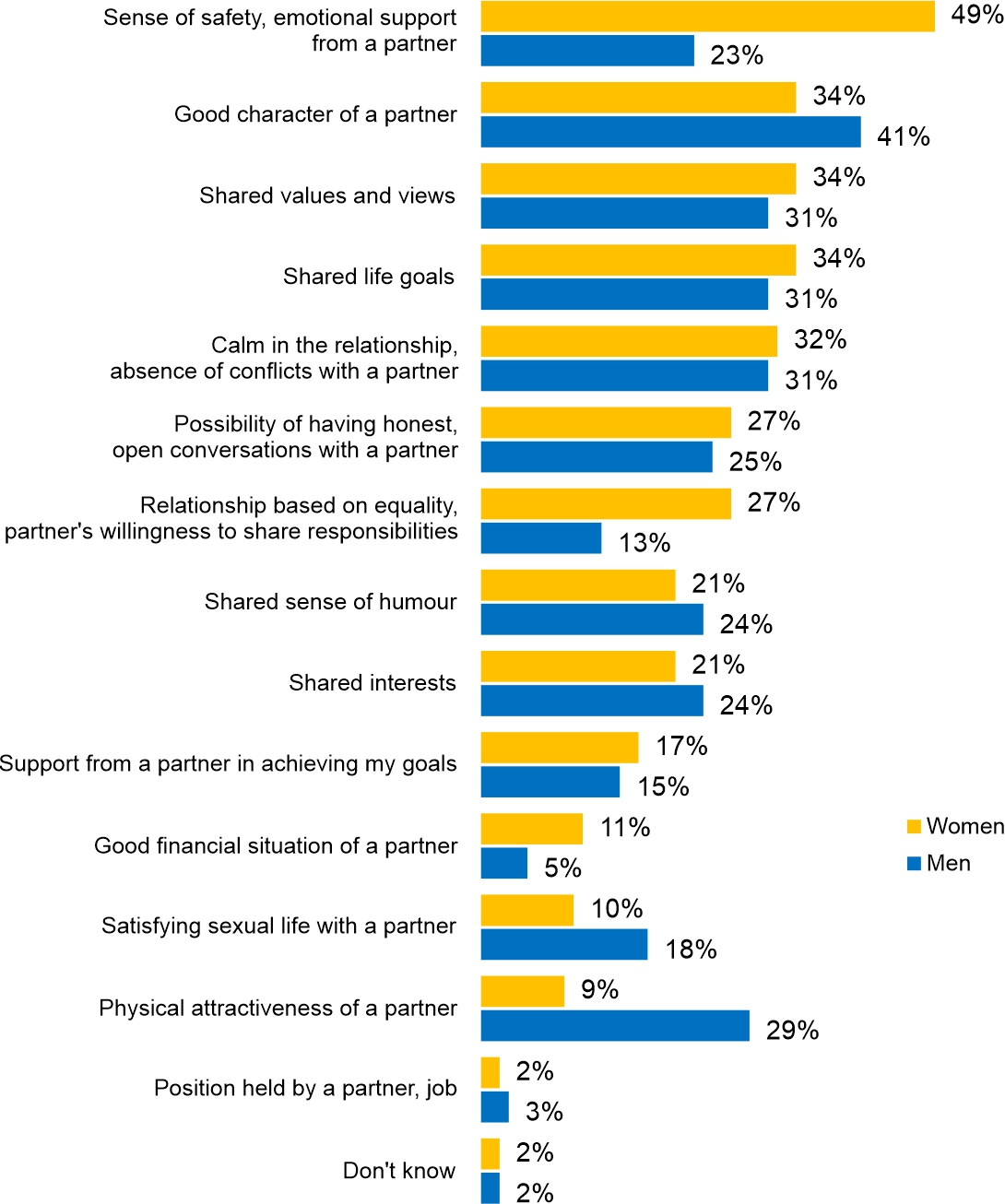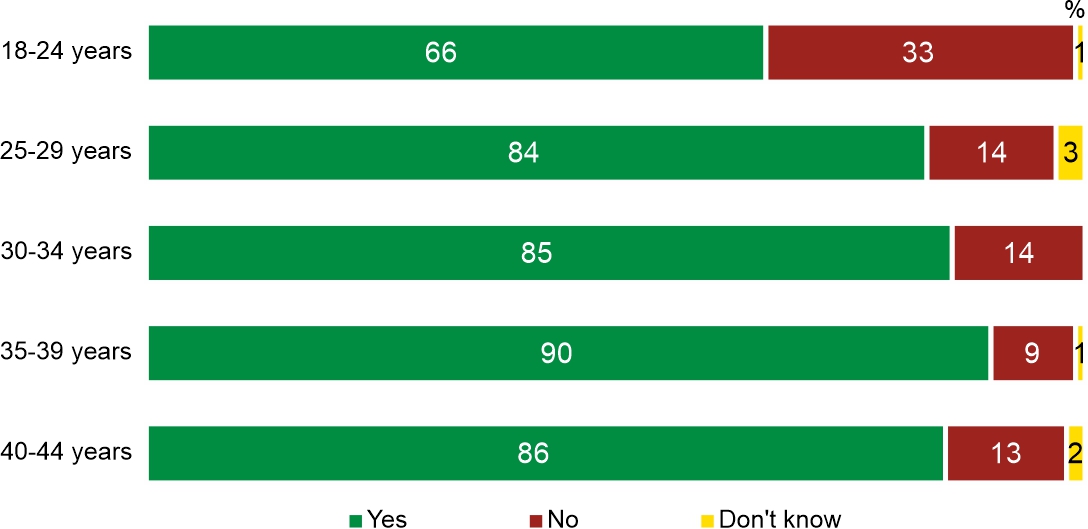The social and emotional life of young Poles
Author: Jonathan Scovil
|
2025-06-16
We also decided to examine the social, emotional, and sexual life of young Poles, checking whether the often-cited thesis about loneliness and difficulties in forming relationships among young people is true. To begin, we asked them how many people from their surroundings they would classify as friends or close acquaintances. The results do not suggest that the social life of young people is particularly poor: only 3% declared that they had no friends. The average number was 4.83, with a median of 4. The average is indeed slightly lower in the younger generation, though not significantly (4.66 in Generation Z compared to 4.92 in Generation Y).
How many people around you would you classify as your friends or close acquaintances?

Declarations show that a clear majority of respondents are currently in some relationship (71%), either married (41%) or in an informal relationship (30%). The personal situation is, of course, differentiated by age. Among Generation Z, the percentage of people who are not in relationships is 44%, while among millennials, it is only 21%. It is worth noting that the result in Generation Z is inflated by the youngest respondents. Among those in the "post-student" age group (25-29 years), the proportion of single individuals is similar to that among millennials, so there does not seem to be a generational crisis in this respect.
Personal situation

We also asked all respondents, both those in relationships and singles, what would be most important to them if they were to enter a new relationship. Interesting differences emerged, especially between genders. Safety (49%) was the most important criterion for women, while men considered it crucial about half as often (23%). Men placed greater emphasis on the physical attractiveness of their partner (29% vs. 9% among women) and on a satisfying sexual life (18% vs. 10% among women). In contrast, for women, sharing responsibilities and a relationship based on equality were significantly more important (27% vs. 13% among men). Notable, though less significant, differences were also apparent between generations: for instance, in Generation Z, the possibility of engaging in honest conversations was indicated more frequently (36% vs. 23% in Generation Y).
Regardless of your situation, if you were to enter a new relationship, what would be most important to you? Please select up to four responses.

Percentages do not sum to 100 as respondents could choose more than one answer
Finally, we asked respondents about their sexual life. The vast majority declared that they had had sex in the past year. However, the percentage of sexually inactive individuals was distinctly higher among the youngest, encompassing one in three Poles aged 18–24. Interestingly, this result corresponds with findings from the French IFOP institute, which reported a sharp increase in the percentage of young French people aged 18–24 who are sexually inactive. Their number was 28% in 2024, compared to 5% nearly 20 years earlier. In Poland, this percentage is even higher and may represent the most pronounced example of difficulties in forming relationships among young Poles that appeared in our data. This is related, on one hand, to a lower percentage of stable relationships in this group and, on the other hand, to a relatively limited openness to casual affairs. Responses to one of our questions indicated that only 2% of respondents aged 18-24 currently prefer such forms of relationships.
Have you had sex in the past 12 months?

More information about this topic can be found in CBOS report in Polish: “The social and emotional life of young Poles", June 2025. Fieldwork dates for the sample: October and November 2024, N=1573. The random sample is representative for adult population of Poland aged 18-44.




